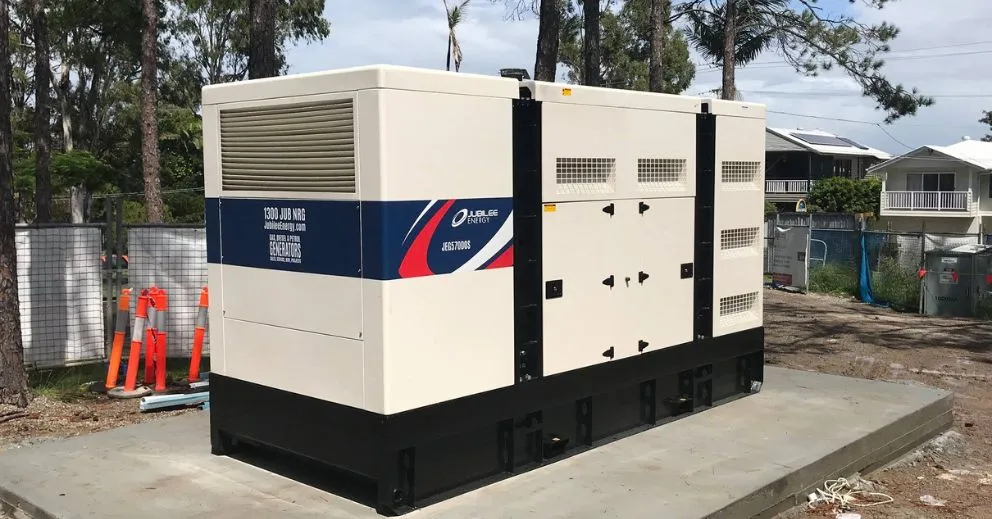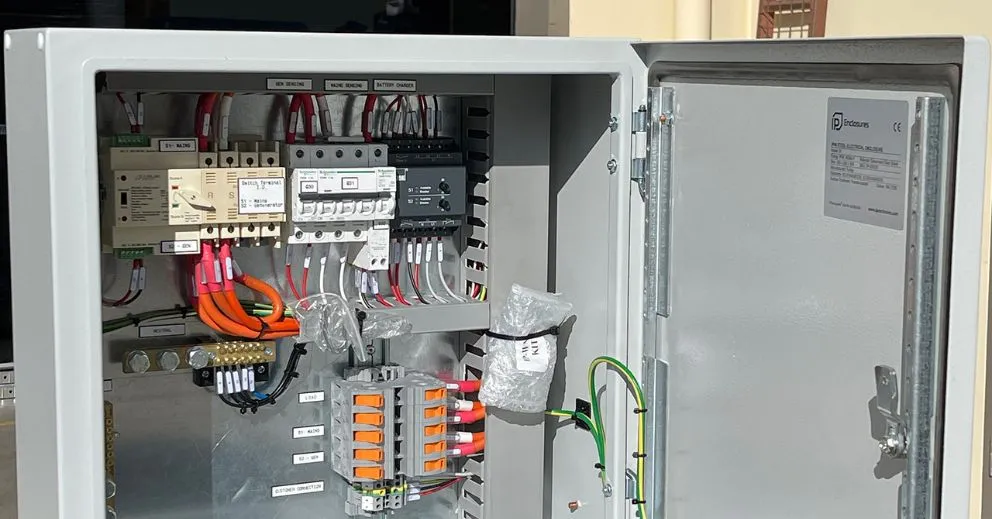When the power goes out, or when you're working off-grid, a diesel generator can be your best friend. Known for their durability, fuel efficiency, and high power output, diesel generator s are a reliable choice for homes, businesses, and industrial sites. If you’re researching how to choose a diesel generator, understanding generator size, fuel type, and intended use is essential to securing reliable power when you need it most. But with so many options available, how do you choose the right one?
In this guide, we’ll walk you through the key factors to consider when choosing a diesel generator, so you can confidently pick the model that suits your needs and budget.
Why Choose a Diesel Generator?
Before diving into the buying tips, it’s worth understanding why diesel generators are so popular:
- Fuel efficiency: Diesel burns slower than petrol, meaning you get more power for your money.
- Longer lifespan: Diesel engines are built tough and tend to outlast other types of generators with proper care.
- Reliable performance: Diesel generators are great for both backup and continuous power, even in remote locations.
- Low maintenance: While regular servicing is still needed, diesel engines require less frequent maintenance than petrol engines.
Whether you need standby power during outages or a primary source of electricity for a job site, diesel generators are up to the task.
1. Determine Your Power Requirements
The first and most important step is to work out how much power you actually need. This process, often referred to as generator sizing, helps ensure your generator power output matches your real-world demand.
Make a list of the devices, appliances, or systems you want to run on the generator:
- For home use: Think about essentials like fridges, lights, internet modems, air conditioning, and overall backup power requirements.
- For business or industrial use: Include machinery, computer systems, tools, pumps, and any equipment essential to operations and uninterrupted power supply.
Tip: Check the wattage of each item and add up the total to determine the correct generator size. Then add a buffer (around 20%) to handle power surges, future expansion, and improved generator power performance.
2. Decide Between Standby or Portable Generators
Diesel generators come in different formats depending on how you plan to use them:
- Standby generator systems are installed permanently and start automatically during a power outage, making them ideal as a long-term backup generator for homes, offices, and critical facilities.
- Portable generator options are well suited for construction sites, events, and mobile operations where temporary power is required. A portable diesel generator combines mobility with durability for demanding environments.
Choosing the right generator depends on whether you need fixed infrastructure protection or flexible, transportable power.
3. Consider Single-Phase vs Three-Phase Power
Your electrical configuration plays a major role in selecting a suitable generator set:
- Single-phase generators are commonly used for residential properties and small commercial operations.
- Three-phase generators are designed for industrial applications with higher loads and more complex generator power demands.
Understanding the correct power factor and electrical load requirements ensures efficient performance and protects connected equipment.
4. Choose the Right Fuel Tank Size
Fuel capacity impacts runtime, refuelling frequency, and overall efficiency. When selecting a fuel type, diesel stands out for long-duration use.
- Smaller tanks suit intermittent or short-term operation.
- Larger tanks are better for continuous use, especially when running diesel generator sets in remote or industrial locations.
A well-matched diesel engine and fuel tank combination supports long operating hours and dependable output.
5. Check Noise Levels
Diesel generators offer different starting options depending on application:
- Manual start: Suitable for smaller systems or mobile use.
- Electric start: Common for residential and commercial generators.
- Automatic start: Ideal for standby generator systems providing seamless backup power during outages.
Automatic starting ensures instant response and uninterrupted reliable power for essential operations.
6. Look at Starting Mechanisms
Diesel generators can be started in a few different ways:
- Manual start: Basic and cost-effective, but requires physical effort.
- Electric start: Push-button convenience, ideal for residential or commercial use.
- Automatic start (ATS-compatible): Perfect for standby power needs, automatically turns on during a power outage.
If convenience and speed matter to you, an electric or automatic start is worth the investment.
7. Think About Location and Installation
Where your generator will be located is an important factor:
- Outdoor units should be weatherproof and properly ventilated.
- Indoor units need to meet ventilation, exhaust, and fuel storage requirements.
Also consider physical space, proximity to your main switchboard, and ease of access for servicing.
8. Check for Safety and Compliance Features
Make sure the generator complies with Australian standards and has built-in safety features like:
- Low oil shut-off
- Overload protection
- Emergency stop buttons
- Circuit breakers
Safety is especially important for high-use or high-capacity generators.
9. Set a Realistic Budget
Diesel generators range widely in price depending on size, features, and brand. While it might be tempting to choose the cheapest option, investing in a quality, well-sized generator will save you more in the long run through fuel efficiency and durability.
Factor in costs like delivery, installation, accessories (such as an ATS), and ongoing maintenance.
10. Choose a Trusted Supplier
Beyond equipment selection, ongoing support matters. A quality supplier offers guidance on selecting the right generator, professional installation, and long-term servicing such as generator repair and maintenance.
At Jubilee Energy, we support everything from single units to complete diesel generator set solutions, ensuring performance, compliance, and longevity.
Find the Right Diesel Generator with Jubilee Energy
Choosing the right diesel generator doesn’t have to be complicated. With the right guidance and a clear understanding of your power needs, you can find a generator that gives you peace of mind, performance, and long-term value.
Looking for a reliable diesel generator in Brisbane or across Australia? Jubilee Energy is here to help.
Contact Jubilee Energy today to get expert advice , top-quality generators, and tailored energy solutions for your home, business, or worksite.
More insights from us
Discover the latest in power generation technology.





